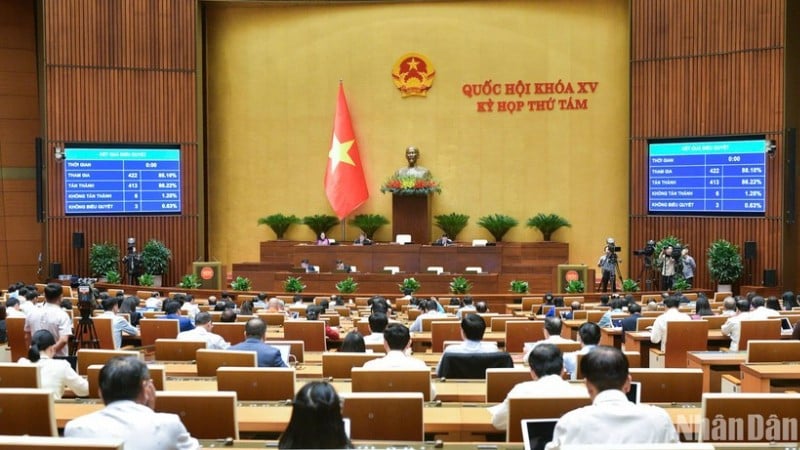
The Law on Cultural Heritage (amended) was passed by the National Assembly on the afternoon of November 23, with 413/422 delegates in favor, including 9 chapters and 95 articles, taking effect from July 1, 2025.
These groundbreaking changes establish modern management thinking, shifting the focus to proactive, creative conservation and closely aligning with sustainable development goals, while requiring unified and drastic implementation across the industry.
Nhan Dan Newspaper reporter had an interview with Associate Professor, Dr. Le Thi Thu Hien, Director of the Department of Cultural Heritage (Ministry of Culture, Sports and Tourism), to clarify the key directions and tasks in the implementation phase of the Law.

Associate Professor, Dr. Le Thi Thu Hien, Director of the Department of Cultural Heritage (Ministry of Culture, Sports and Tourism ).
Reporter: Dear Director, On November 23, 2024, the National Assembly passed the 2024 Law on Cultural Heritage, replacing the 2001 Law and the 2009 Amendment Law, marking a major shift in state management of heritage. During the implementation phase, what contents will the Department of Cultural Heritage prioritize to complete so that the law can soon come into effect and meet conservation requirements in the new situation?
Associate Professor, Dr. Le Thi Thu Hien - Director of the Department of Cultural Heritage: The Law on Cultural Heritage consists of 9 chapters and 95 articles, an increase of 2 chapters and 22 articles compared to the current Law (7 chapters and 73 articles), which has fully institutionalized the Party and State's guidelines and policies on culture and cultural heritage, overcome and remove institutional bottlenecks, with new points and breakthrough changes, deeply affecting all aspects of the country's cultural, social and economic life, creating a fundamental shift in position and strength for the cause of managing, protecting and promoting the value of cultural heritage of the whole country and localities, in accordance with practical requirements.
The 2024 Law on Cultural Heritage is considered an important turning point in the process of innovation, transforming thinking from "doing culture" to "cultural management", strongly shifting from "passive conservation" to "active, creative conservation and sustainable development". Implementing the direction of the leaders of the Ministry of Culture, Sports and Tourism, with the role of an advisory body, assisting in state management of cultural heritage, the Department of Cultural Heritage determined that the Law passed by the National Assembly not only contributes to perfecting the legal framework on management, protection and promotion of cultural heritage values, but also requires urgent and drastic organization and implementation of tasks so that the Law soon "comes into life" in a synchronous and effective manner, meeting the requirements of protecting and promoting cultural heritage values in the new context.
First of all, focus on developing and synchronously implementing documents guiding the implementation of the 2024 Law on Cultural Heritage, including 3 Decrees and 3 Circulars, ensuring the concretization of regulations on management, protection and promotion of heritage values; decentralization and delegation of powers; simplification of administrative procedures; at the same time ensuring the consistency, feasibility and synchronization of the legal system from central to local levels. At the same time, the Department continues to research and advise on perfecting mechanisms and policies to create a complete and favorable legal corridor for the management, inventory, restoration, rehabilitation and promotion of heritage values and encourage the active participation of society in activities to protect and promote the values of cultural heritage, ensuring consistency and synchronization with other relevant legal provisions.
Strengthen inspection and guidance on the work of inventorying, ranking, recognizing and registering cultural heritage in national and international lists; strengthen the preservation and restoration of cultural heritages at risk of fading and being lost; at the same time, implement policies on preferential treatment, honoring and supporting artisans, those who preserve and teach the values of cultural heritage. During the implementation process, always identify the community as the central subject in the work of protecting and promoting the values of cultural heritage, always respect cultural diversity, promote dialogue between communities, ensure regional, ethnic specificity, in accordance with Vietnamese customs and laws, contribute to enriching the national cultural identity and strengthening the great solidarity bloc, creating stable livelihoods for the community of people where heritage is located.
Improving the quality of human resources is identified as a key task. The Department of Cultural Heritage focuses on strengthening training and fostering to improve the professional qualifications of civil servants and public employees, while renewing thinking about state management and cultural governance. The goal is to build a workforce with sufficient capacity, deep understanding of law, management science and conservation practices, in order to comprehensively develop the management, protection and promotion of cultural heritage values in the new period.
Communication and dissemination of laws are also widely deployed on digital platforms and mass media, aiming to raise awareness and responsibility of the whole society for protecting and promoting the value of cultural heritage. Along with that is the strengthening of international cooperation, strong application of digital technology in building national databases, digitizing artifacts and relics, and displaying heritage in the electronic environment.
Reporter: In addition to the Law on Cultural Heritage 2024, many important documents such as Decree 39/2024/ND-CP dated April 16, 2024 on regulations on measures to manage, protect and promote the value of intangible cultural heritage in UNESCO lists and the list of national intangible cultural heritage, or Decree 67/2022/ND-CP dated September 21, 2022 on regulations on authority, order, procedures for establishing, appraising and approving plans and projects for preserving, renovating and restoring historical and cultural relics and scenic spots. What do you think are the points that need to be focused on to create consistency between these legal documents?
Associate Professor, Dr. Le Thi Thu Hien - Director of the Department of Cultural Heritage: In the process of advising on the development of the 2024 Law on Cultural Heritage and guiding documents, ensuring the consistency and synchronization of the legal system is our top priority. This synchronization is demonstrated at two levels:
Synchronization in the process of law-making: Identify the goal of amending and perfecting the legal system based on inheriting appropriate regulations that have been implemented stably for many years, in order to thoroughly resolve "bottlenecks" to ensure consistency and synchronization between the Law on Cultural Heritage and other relevant legal regulations. At the same time, update and internalize international regulations on the protection and promotion of the value of cultural heritage, to ensure consistency between regulations on the protection and promotion of the value of monuments and world heritages with regulations on the protection of intangible cultural heritage, relics, antiquities, documentary heritage, etc.
Synchronize propaganda and law enforcement work: Timely organize propaganda and dissemination of legal documents in the field of cultural heritage in general and relics in particular; advise on the issuance of Official Dispatch No. 4058/BVHTTDL-DSVH dated August 12, 2025 of the Ministry of Culture, Sports and Tourism to the People's Committees of provinces and centrally run cities to guide the implementation of projects to preserve, restore and renovate relics and works and investment projects according to the provisions of Decree No. 208/2025/ND-CP of the Government.

Phu Day Festival is listed as a national intangible cultural heritage. (Photo: TRUONG HUY)
Regularly organize training programs and professional development to improve awareness and law enforcement capacity for civil servants and officials in the cultural heritage sector at central and local levels.
Thanks to the above approaches, the legal system on cultural heritage in general and relics in particular basically ensures unity, synchronization, constitutionality and legality, thereby creating favorable conditions for activities to protect and promote the value of cultural heritage, improve the effectiveness and efficiency of state management, promote the application of information technology, digital transformation, service activities, public-private partnership in the field of cultural heritage, etc., and ensure harmony between conservation and development.
Reporter: One of the core spirits of the 2024 Law on Cultural Heritage is to strengthen the role of the community in protecting, preserving and teaching heritage. According to the Director, what solutions are needed to more effectively mobilize community participation, especially in remote areas and ethnic minority areas?
Associate Professor, Dr. Le Thi Thu Hien - Director of the Department of Cultural Heritage: The 2024 Law on Cultural Heritage strongly strengthens the role of intangible cultural heritage subjects in activities of protecting and promoting the value of intangible cultural heritage. This is clearly shown in the provisions related to the ownership of intangible cultural heritage, inventory, identification, practice and transmission of intangible cultural heritage. The Law also clearly stipulates the implementation of rights and responsibilities of intangible cultural heritage subjects in implementing principles in practicing, managing, protecting and promoting the value of intangible cultural heritage.
Specific examples of principles in managing, protecting and promoting the value of intangible cultural heritage such as: "Respecting the rights of intangible cultural heritage subjects and intangible cultural heritage artisans in deciding on the elements that need to be protected and the form and level of promotion of cultural heritage; determining risks and impacts that threaten the existence and choosing solutions to protect cultural heritage" (Article 6); or as in Article 7 on state policy, the Law stipulates: "Protecting and promoting the value of cultural heritage in ethnic minority and mountainous areas, border and island areas, with special priority given to protecting and promoting the value of cultural heritage of ethnic minorities with very few people and ethnic minorities at risk of losing their ethnic cultural values".
In the spirit of the provisions of the Law on Cultural Heritage related to the role of the subject of cultural heritage, the protection and promotion of the value of intangible cultural heritage of ethnic minorities associated with the participation of the subject of intangible cultural heritage is reflected in all activities and measures to manage, protect and promote the value of intangible cultural heritage, focusing on tasks and solutions such as: strengthening the work of inventorying, identifying and registering intangible cultural heritage with the participation of the community; opening classes to teach intangible cultural heritage inside and outside the community with the participation of artisans and practitioners; carrying out activities to honor artisans and practitioners of intangible cultural heritage; organizing festivals, performances and practices of intangible cultural heritage; Linking management, protection and promotion of intangible cultural heritage values with local economic and social development programs, plans, projects and schemes to improve the spiritual and material life and livelihoods of heritage owners.
Reporter: In the context that many heritages are under pressure from urbanization, climate change and changes in contemporary life, how does the Department of Cultural Heritage orientate heritage protection work to harmonize the requirement of preserving original values and the need for socio-economic development in localities?
Associate Professor, Dr. Le Thi Thu Hien - Director of the Department of Cultural Heritage: In the context of cultural heritage being under pressure from urbanization, climate change and strong changes in contemporary life, we always realize that conservation and development are not two opposing sides, but two symbiotic factors, supporting each other for the goal of sustainable development. Therefore, the Department of Cultural Heritage, as an advisory body to assist the Ministry of Culture, Sports and Tourism in performing the function of state management of cultural heritage, has implemented a number of solutions as follows:
- Complete the system of legal documents on cultural heritage, remove "bottlenecks", create a breakthrough in institutions and favorable and suitable mechanisms to preserve and promote the value of cultural heritage associated with socio-economic development and sustainable tourism development. The 2024 Law on Cultural Heritage (Articles 28, 29 and Article 30) and Decree No. 208/2025/ND-CP dated July 17, 2025 of the Government (Articles 43, 44 and Article 45) have ensured consistency and synchronization with the provisions of the law on investment, public investment, construction and other relevant legal provisions, on the basis of clearly stipulating the authority, order and procedures for giving opinions on the implementation of construction investment projects, construction of works, individual houses carrying out activities within and outside the relic protection area, outside the buffer zone of the world heritage area.
In particular, based on the recommendations of ICOMOS and UNESCO on perfecting the integration of the heritage impact assessment mechanism, the Department of Cultural Heritage has advised the Ministry of Culture, Sports and Tourism to proactively internalize and perfect legal documents related to the assessment of world heritage impacts in the Law on Cultural Heritage (Point b, Clause 1, Article 29) and Decree No. 208/2025/ND-CP dated July 17, 2025 of the Government (Article 42). These regulations aim to ensure the implementation of investment projects, construction of works, use of sea areas to carry out exploitation and use of marine resources, carry out socio-economic activities in world heritage areas, buffer zones of world heritage areas, comply with environmental protection requirements, prevent, control, and assess factors affecting world heritage according to UNESCO's regulations and guidelines.
- Improve the quality of appraisal of planning, projects for preservation, restoration, rehabilitation and promotion of relic values.
- Strengthen inspection and monitoring of law enforcement in the management, protection and promotion of cultural heritage values; promptly detect and prevent acts of encroachment on relics, handle or recommend strict handling according to regulations for organizations and individuals with violations.
By closely combining a clear legal framework, appropriately applying UNESCO's world heritage impact assessment toolkits and guidelines, and regular inspection and monitoring mechanisms, the Department of Cultural Heritage believes that in the future, the problem of harmonizing the conservation and promotion of cultural heritage values will be gradually resolved, in order to meet the needs of sustainable socio-economic development of localities with relics and world heritages.
Reporter: Looking back at more than 20 years of implementing the 2001 Law on Cultural Heritage and the 2009 Amendment Law, according to the Director, what is the most important lesson for building cultural heritage policies in the new period, to arouse cultural strength and make practical contributions to national development?
Associate Professor, Dr. Le Thi Thu Hien - Director of the Department of Cultural Heritage: Looking back at more than two decades of implementing the 2001 Law on Cultural Heritage and the 2009 Law on Amendments and Supplements, it can be affirmed that cultural heritage has always been one of the sustainable pillars of national identity and spiritual strength. However, in the new development stage, with the context of deep integration, strong digital transformation and the requirement to enhance national internal strength, we need a new way of thinking about cultural heritage. Therefore, the 2024 Law on Cultural Heritage is built on the foundation of the most important lesson:
Cultural heritage must be recognized as a national development resource - it needs to be managed with modern thinking, with policies based on the Vietnamese value system, and with mechanisms to mobilize the participation of the whole society.
From that core lesson, some key orientations in the cultural heritage policy of the new period, which is also the spirit of the 2024 Law on Cultural Heritage, are identified as follows:
First, putting the community at the center: The new law emphasizes the role of the community as the subject in preserving and promoting cultural heritage; considering the community not only as “beneficiaries”, but also as “co-creators”. The policy must arouse the cultural energy of the people, creating an environment for each citizen to be proud, participate, and be creative on the basis of cultural heritage.
Second, approaching heritage management according to international standards: The 2024 Law on Cultural Heritage has taken a comprehensive approach according to a modern management framework: making processes transparent, standardizing databases, increasing the responsibility of management entities, and improving professional capacity. This is a necessary step for heritage to be sustainably protected and in accordance with UNESCO conventions of which Vietnam is a member.
Third, linking conservation with sustainable development: An important focus of the 2024 Law on Cultural Heritage is to turn heritage into a resource for socio-economic development, especially cultural tourism, cultural industry and creative economy, but on the principle of not damaging the original value. Development must be controlled, planned and based on full impact assessment.
Fourth, promoting digital transformation and science and technology: The 2024 Law on Cultural Heritage provides clearer regulations on digitizing heritage, creating electronic records, artificial intelligence in value identification, and managing national data on cultural heritage. This is a tool for us to both better protect and expand public access, especially for the younger generation.
Fifth, expanding international cooperation and enhancing Vietnam's position: Through 20 years of experience, it can be seen that international cooperation is the shortest way to access new knowledge, new technology and advanced standards. The 2024 Law on Cultural Heritage creates a legal corridor for us to participate more deeply in the global cultural heritage network, while promoting the image of Vietnam as a responsible, proactive and creative country in protecting cultural heritage.
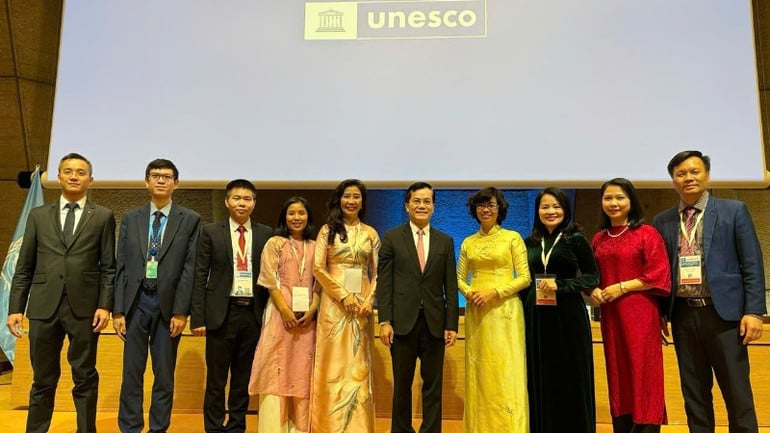
On November 22, 2023 in Paris, France, within the framework of the 24th General Assembly of Member States of the Convention for the Protection of the World Cultural and Natural Heritage (World Heritage Convention), Vietnam was elected to become a member of the World Heritage Committee for the 2023-2027 term.
In short, the most important lesson for building cultural heritage policies in the new period is to shift from management thinking to creation and development thinking; from administrative approach to value-based approach; from individual conservation to cultural heritage ecosystem management.
With that spirit, the 2024 Law on Cultural Heritage is a strategic step, demonstrating the Government's determination to arouse cultural strength, promote the value of cultural heritage as a soft resource of the nation, contributing to building an advanced Vietnamese culture imbued with national identity and promoting sustainable development of the country.
Reporter: Thank you very much, Director!
HOAI THU
Source: https://nhandan.vn/he-thong-chinh-sach-moi-va-yeu-cau-nang-cao-hieu-qua-quan-ly-di-san-post925507.html





![[Photo] Prime Minister Pham Minh Chinh receives Governor of Gunma Prefecture (Japan) and Special Advisor to the Japan-Vietnam Friendship Parliamentary Alliance](/_next/image?url=https%3A%2F%2Fvphoto.vietnam.vn%2Fthumb%2F1200x675%2Fvietnam%2Fresource%2FIMAGE%2F2025%2F11%2F25%2F1764066321008_dsc-1312-jpg.webp&w=3840&q=75)

![[Photo] Close-up of Ba Ha River Hydropower Plant operating to regulate water to downstream](/_next/image?url=https%3A%2F%2Fvphoto.vietnam.vn%2Fthumb%2F1200x675%2Fvietnam%2Fresource%2FIMAGE%2F2025%2F11%2F25%2F1764059721084_image-6486-jpg.webp&w=3840&q=75)



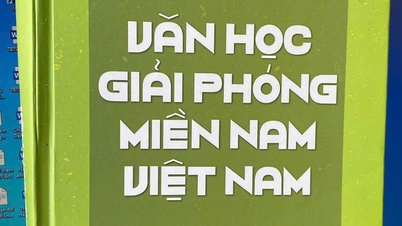

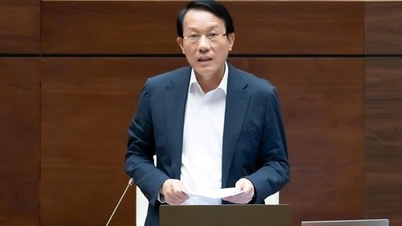








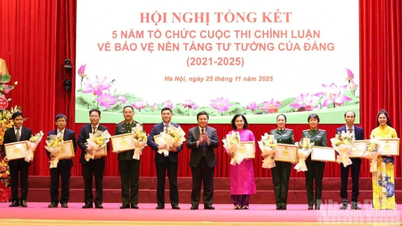
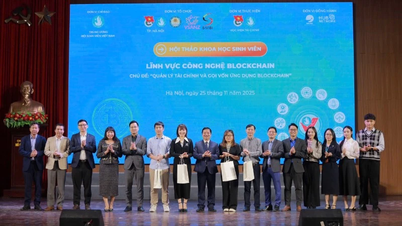

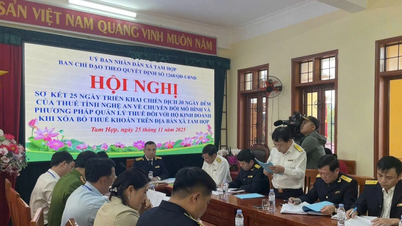
![[Video] More and more foreigners come to Vietnam for medical treatment](https://vphoto.vietnam.vn/thumb/402x226/vietnam/resource/IMAGE/2025/11/25/1764075012380_10-nam-kham-chua-benh-403-jpg.webp)



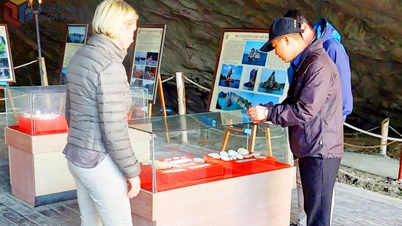





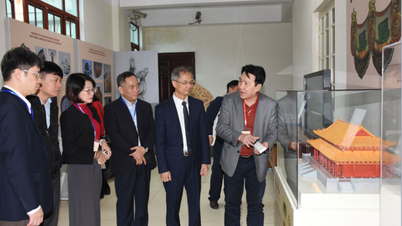













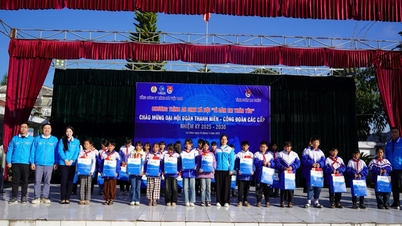


![[Answer] Should I install an elevator for an old renovated house?](https://vphoto.vietnam.vn/thumb/402x226/vietnam/resource/IMAGE/2025/11/25/1764039191595_co-nen-lap-thang-may-cho-nha-cai-tao-cu-khong-04.jpeg)


















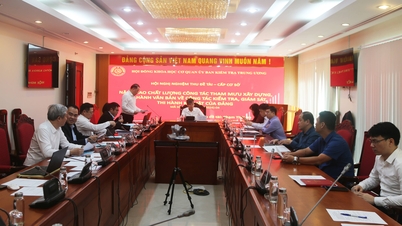



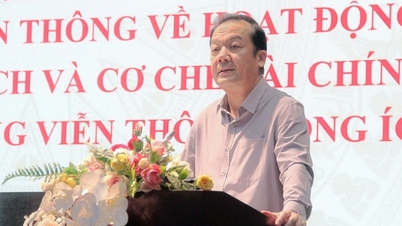


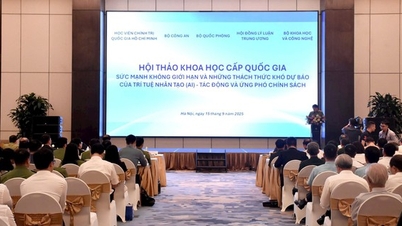


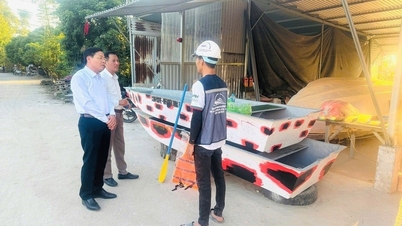



















Comment (0)